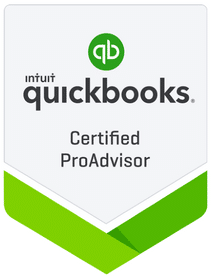- Patrick Roney
- (877) 503-8607
Follow Us :
Follow Us :
Proledge
July 12, 2010

When small business owners need help with QuickBooks, the typical reflex is to ask their CPA or look for a bookkeeper. It will often work, but it is not necessarily the best option. There are four groups of people out there who can support your needs: CPAs, bookkeepers, QuickBooks Consultants and bookkeeping firms. The challenge is to figure out who will give you the best combination of competency and cost.
Let’s start with a common question: “What is a QuickBooks Consultant”? You put the word “Consultant” into someone’s title and you are guaranteed to have fuzziness around the exact function of that individual. The most commonly accepted definition of a QuickBooks Consultant is someone who meets the following 2 criteria:
The QuickBooks ProAdvisor program is run by Intuit, the maker of QuickBooks. Anybody can become a ProAdvisor, just by paying an annual fee to Intuit, but to become “certified”, you need to pass tests. There are server levels of certification; basic, advanced, specialized on Point of Sales, specialized on QuickBooks Enterprise, etc… The more certifications, the more qualified the consultants are and the higher hourly rate they can command. The higher their hourly rate, the least likely you are to hire them for day-to- day bookkeeping support. Accordingly, the focus of QuickBooks Consultants is typically on projects. For instance:
Pretty much every QuickBooks Consultant started their career as a bookkeeper, but as they get more experience and get more ProAdvisor certifications, they want to focus on more challenging and better paying jobs. That’s why most of them move out of the daily, weekly or monthly bookkeeping tasks and focus on projects.
“Well, if I need to pay a premium over a regular bookkeeper rate, shouldn’t I go to my CPA instead of a QuickBooks Consultant?”. Good question. CPAs are absolutely critical for your business, but you have to realize that their expertise is in taxes, not QuickBooks. There are some CPAs who are QuickBooks experts, but they are a tiny minority. The typical CPA will know enough about QuickBooks to pull the proper information out of it and to do adjustments through journal entries. To understand QuickBooks well and stay up-to-date with each new revision, you have to spend a lot of time in it, and most CPAs know that their hourly rates are too high to justify charging their clients while they become proficient in QuickBooks.
So here are simple rules of thumb:
So where do bookkeeping firms fit in all of this? Most bookkeeping services firms, including ProLedge, will have both bookkeepers and QuickBooks Consultants on staff and they will be able to match the proper professionals to your needs, while keeping your costs as low as possible. However, like in any consulting profession, there are always some fields of expertise that are so specialized that there isn’t a single bookkeeping firm out there that can do it all. For instance, if you want to interface QuickBooks with the inventory management Fishbowl, there are only a couple of individuals in the whole of Texas who have the proper certifications to support this. In such cases, your bookkeeping firm should partner with a third party QuickBooks Consultant who has that specific niche expertise. Most good bookkeeping firms will know when to reach out to outside experts.


Fill out the form below to sign up to our Blog Newsletter and we’ll drop you a line when new articles come up.
Bookkeepers.
Professional. Affordable.
ProLedge is a bookkeeping services firm.
Copyright © 2024 All rights reserved.